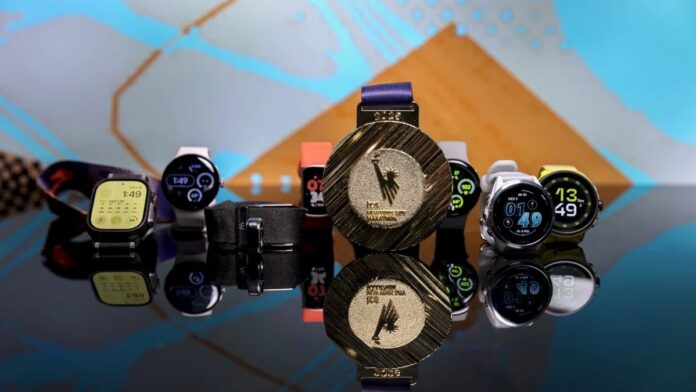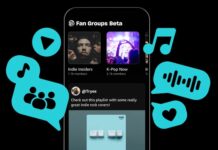Training for and running the New York City Marathon requires serious dedication, but it also means subjecting your body to immense stress. Knowing how to train smart and recover effectively is crucial to avoiding burnout and hitting your personal best on race day. That’s why I put seven popular fitness trackers through their paces during my 18-week marathon training journey, covering a total of 508 miles, 30 weightlifting sessions, 110 miles on the bike, and countless yoga or Pilates sessions (to keep me from turning into pure quad). The goal: to find the best tracker for both performance insights and recovery analysis.
While all these devices boasted impressive specs, not every metric mattered equally when training for a marathon. Here’s what truly stood out and which trackers rose above the rest.
Зміст
The Champions of Recovery Data
For deep dives into sleep, stress, and overall readiness, two trackers emerged as champions: Whoop MG 4.0 and Oura Ring 4.
-
Whoop MG 4.0: This sleek, minimalist band prioritizes health and recovery over immediate performance data. Its strength lies in its unparalleled post-workout insights—literally pinpointing moments of strain or stress during a run or workout—making it feel incredibly personalized and validating. Sleep tracking is exceptional, breaking down stages, disturbances, and readiness scores into actionable data to guide your training decisions. While the subscription model might be frustrating, Whoop’s depth of recovery data makes it a powerful tool for understanding your body better.
-
Oura Ring 4: The Oura Ring excels in discreet, elegant style and its nuanced tracking of vital health indicators like heart rate variability, sleep quality, temperature, and general activity. It offers surprisingly accurate cycle tracking as well. While not designed specifically for intense workouts, it provides a comprehensive recovery picture that aligns closely with the more data-heavy Whoop device.
The Running Powerhouses:
For runners who demand detailed performance insights and coaching features, the Garmin Forerunner 570 reigns supreme.
- Garmin Forerunner 570: This GPS watch is a true runner’s companion. Its robust workout metrics—pace, heart rate, time—are presented clearly. But the real magic happens post-workout: it analyzes your performance with impressive granularity, offering training load, stress score, normalized graded pace, and even power output data. Garmin’s adaptive training plans based on your individual progress are a standout feature for serious marathoners.
For runners who prioritize affordability without sacrificing core metrics, the Suunto Run delivers exceptional value.
- Suunto Run: This lightweight and comfortable tracker focuses on essential run data like pace, heart rate, and cadence. While it lacks some smartwatch features found in other trackers, its accuracy and battery life (up to 20 hours in performance mode) make it a compelling choice for runners who prefer a streamlined approach.
Smartwatch Runners-Up:
While not purely running watches, the Apple Watch Ultra and Google Pixel Watch 4 offered strong smartwatch functionality combined with solid fitness tracking capabilities.
-
Apple Watch Ultra: With its massive screen, robust battery life (easily lasting through an entire marathon), and seamless integration with Apple’s ecosystem, it proved invaluable during race day for quick note-taking and communication. The downside? Its price tag ($799) is considerably higher than other options.
-
Google Pixel Watch 4: This sleek smartwatch delivers all the essential run metrics on a beautiful display, and its integration with Google Fit provides insightful training analysis. However, I experienced battery issues during the marathon itself, which was a major drawback for a race that demands uninterrupted power.
The Underdog: Fitbit Charge 6
- Fitbit Charge 6: While the most affordable tracker in this test, it ultimately fell short due to inconsistent GPS accuracy and the lack of elevation gain data – vital for hill training. Its heart rate tracking was accurate and strong recovery metrics offered a decent picture of overall wellness.
Ultimately, the best fitness tracker for your marathon journey depends on your priorities. If recovery analysis is paramount, Whoop or Oura are top picks. For runners seeking comprehensive performance insights and coaching features, the Garmin Forerunner 570 shines. And if you want a blend of smartwatch functionality and solid running metrics without breaking the bank, the Suunto Run delivers excellent value.
















![Як зробити налагодження по USB і взагалі для чого це потрібно — [Докладний Гайд]](https://chvv.com.ua/wp-content/uploads/2018/08/1-25-1-324x235.jpg)






![SanDisk Extreme Pro 64GB — [детальний огляд] швидкісний карти памяті](https://chvv.com.ua/wp-content/uploads/2018/08/2-12-100x70.jpg)





